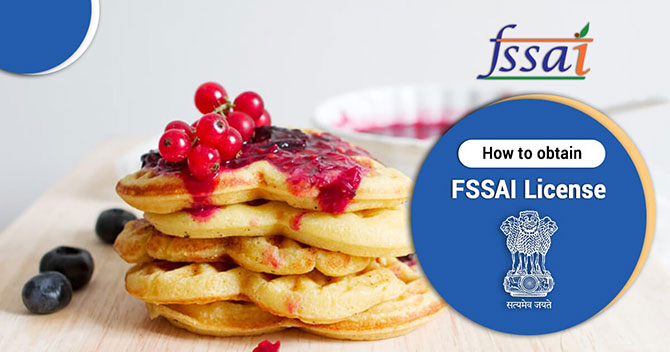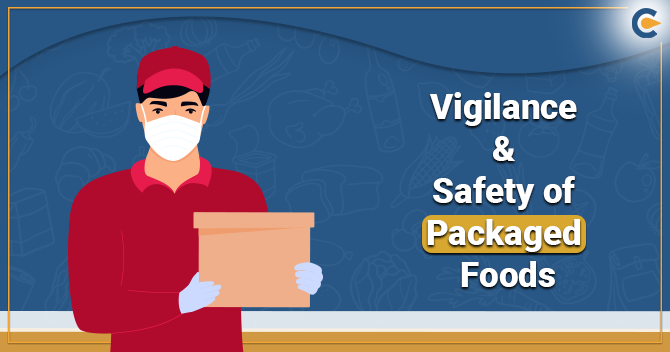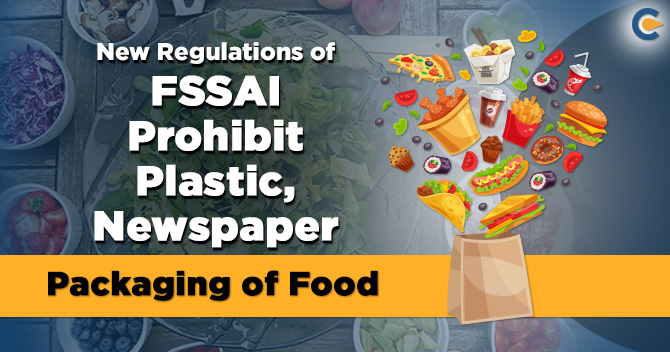FSSAI License is granted by the Food Safety and Standards Authority of India {FSSAI}, which is the apex body of the Government of India responsible for regulating and formulating rules related to food safety and standardization. It is mandatory for every food-related business commonly known as food business operators {FBOs} to obtain FSSAI License unless exempted by law. In this article, we are going to learn about how you can get a relevant food license as per the eligibility criteria of your food business.
About FSSAI
FSSAI the issuing authority of food licenses in India is accountable for protecting, maintaining and promoting public health by managing and supervising food safety in India. FSSAI or Food Safety and Standards Authority of India[1] is the sole and pinnacle regulatory body responsible for maintaining and supervising food safety in our country. It was set- up in 2006 by the enactment of Food Safety and Standardization Act {FSS Act} in the same year. Through the provisions of the FSS Act, the FBOs are granted a Basic Registration, State License or Central License based on the turnover of their food business and other requirements. FSSAI Registration or License is a 14 digit code number compulsory to be obtained before starting any food business.
Types of FSSAI License in India


The Food License in India is divided into three types, based on the turnover of the food business and the type of business. Lets’ look at the types of food licenses in detail;
Basic FSSAI Registration
The small-sized food business operators like transporters, manufacturers, storage units, marketers, distributer, retailers, etc. need to acquire a Basic FSSAI Registration which is granted by the respective State Government. All FBOs having the annual turnover of less than Rs. 12 lakh are eligible for the Basic FSSAI Registration.
State FSSAI License
The food business operators or FBOs, having an annual turnover of more than Rs. 12 lakh, such as small to medium-sized manufacturers, transporters, storage units, retailers, marketers, distributors, etc. are required to obtain the State FSSAI License. It is issued by the concerning State Government having a minimum validity of one year and a maximum of 5 yrs.
Central FSSAI License
FBOs having turnover more than Rs. 20 crores, for example, large manufacturers, export-oriented plants, importers, operators in the Central Government agencies, seaports, airports, etc. are enforced to obtain a Central FSSAI License issued by the Central Government. Also, the food business operators are directed to obtain the Central License for their head office, if they are operational in more than one state.
Eligibility for Basic Registration
Food businesses having annual turnover between upto Rs. 12 Lakhs are eligible for taking a Basic FSSAI License.
Eligibility for State License
The FSSAI State License needs to be obtained by the following food business operators having turnover more than Rs. 12 Lakhs to Rs. 20 Crore:
- Proprietary Foods
- Restaurants
- Meat Processing Units
- Food Processing Units including retailers and repackers
- Slaughtering Units
- Dairy Units, including Milk Chilling Units.
- Vegetable Oil Processing Units and the Units producing vegetable oil through the process of solvent extraction and refineries, including Oil Expeller Unit
- Hotels
Eligibility for Central License
The Central FSSAI License is required to be taken by the following food business operators having a turnover exceeding Rs. 20 Crore:
- Dairy Units, including Milk Chilling Units
- Slaughtering Units
- Proprietary Foods
- Food Processing Units that involves retailers and repackers
- Vegetable Oil Processing Units and manufacturing units that produce vegetable oil through the process of solvent extraction and refineries, including Oil Expeller Unit
Documents and information required for FSSAI Registration
Given below is the list of documents and other details necessary to obtain all three types of food licenses;
Documents required for Basic Registration
The following documents are required for Basic registration;
- Latest Passport-sized photograph of the applicant
- Identification proof (voter ID card or Aadhaar Card)
- PAN Card
- Address Proof- Telephone or Mobile Bill/ Electricity or Gas Bill)
- Copy of Property papers (if owned)
- Copy of Rent Agreement and NOC letter from the Landlord (if rented)
Documents required for FSSAI State License
The following documents are required for FSSAI State License in India;
- Form-B duly filled and signed by the Proprietor
- Proof of possession of premises
- Blueprint or layout of the area location
- Partnership affidavit of Proprietorship
- List and details of the type of equipment and machinery used
- Contact details of the Directors.
- NOC and Copy of License from the producer
- List of food products that have to be manufactured
- Food Safety Management System Plan or Certificate
- Photo ID and Address Proof of Proprietor issued by the Indian Government. In the case of a company, the Director’s photo ID and address proof has to be submitted
- Authority letter with address and name of the concerned person
Documents required for Central FSSAI License
The following documents are needed for Central FSSAI License in India;
- List of the types of machinery and equipment
- Form-B duly filled and signed by the proprietor or the owner
- Blueprint or layout of the area location
- Proof of possession of premises
- Contact details of the Directors
- Photo ID and Address Proof of Proprietor issued by the Indian Government. In the case of a company, the Director’s photo ID and address proof has to be submitted
- Analysis of water report from an authorised/ public health laboratory
- Pesticide residue report of water in case of units producing mineral or carbonated water from a recognized/ public health.
- Food Safety Management System plan or certificate
- Import Export Code issued by DGFT for importers
- Copy of the license from the producer
- NOC/PA issued by FSSAI
- FSSAI Declaration Form
- The following information, if applicable
- Source of milk
- Source of meat and meat processing units
- Supporting proof of turnover
- NOC from the municipality and local body
- Supporting evidence of turnover for vehicles, if suitable
- MCA Incorporation Certificate, if applicable
- Certificate provided by the Ministry of Tourism
Validity and Renewal of FSSAI License in India
The validity of an FSSAI Food License in India ranges from a minimum one year and to a maximum of five years.
Furthermore, an FSSAI License or Registration has to be renewed 30 days before its expiry. You can use Form A or Form B, whichever is applicable based on the type of food license. Also, every FBO whose license or registration has expired is liable for a penalty of Rs. 100 per day.
Procedure to obtain FSSAI Food License


Cancellation/ Suspension of FSSAI License
Under the below-mentioned circumstances, the food license can either be cancelled or suspended:
- Food poisoning outbreaks are associated with the spread of the disease
- Complaints in cases where the consumer’s health is severely affected
- Interrupting an officer
- Food Business Operator’s non-compliant premises
- Non- compliance with a critical or other legal notice without reasonable excuse
- Severe violations of the FSSAI rules and compliances
- A breach in case there is a history of non-compliance of FSSAI safety rules and requirements
Exemptions
There are certain Food Business Operators who have exceptions from obtaining FSSAI license. The petty retailer is exempted from obtaining the FSSAI registration/license. Apart from this following FBOs are exempted:
- Itinerant vendor
- Small-scale
- Cottage FBO
- Tiny food business operator
- A temporary stallholder
- Hawker
- Other food businesses with turnover less than Rs. 12 Lakhs
Offences and Penalties under FSSAI License
Under the following cases a Food Business Operator is liable for a penalty for the violation of the provisions of the FSS Act;
- General provisions relating to offences
- General rules relating to the fine
- Selling food, not containing or missing the substance, nature or quality demanded by the consumer
- Selling sub-standard food
- Distributing misbranded food
- Issuing misleading advertisement
- Dealing with food containing extraneous matter
- Failing to comply with the directions of Food Safety Officer
- Processing food in unhygienic or unsanitary ways
- Possessing adulterant
- Involving with unsafe food
- Interfering with seized food items
- Providing false information
- Obstructing or impersonating a Food Safety Officer
- Carrying out a business without a relevant food license
- Compensation in case of the injury or death of the consumer
- Offences by firms
- Contravening the provisions of FSS Act in case of import of food articles
Consequences of Non-Compliance
Any registered person under the FSSAI has to comply with the regulations and rules under the FSS Act, 2006. Food safety officer usually conducts the inspection on the safety and hygiene conditions of the food business operator’s enterprise and verifies the extent of compliance with the FSSAI guidelines using a checklist. Then on the basis of the compliance level, the food safety officer shall mark it as:
- Compliance (C)
- Non-compliance (NC)
- Partial compliance (PC)
- Not applicable/Not observed (NA)
On the basis of the above markings, the food safety officer may issue an improvement notice where ever necessary according to Section 32 of the FSS Act, 2006. The business operator on failing to comply with the improvement notice shall result in cancellation of the license after the officer giving the FBO an opportunity to show cause. The appeal by the food business operator from the improvement notice shall lie to the State Commissioner of Food Safety. The decision can be challenged by appealing to the Food Safety Appellate Tribunal or the High Court.
Penalty for Non- Compliance
The penalty for various type of non-compliance is given below:
| Sr.No | Particulars | Fine |
| 1 | Food quality not in compliance with act | 2 Lakh Petty manufacturer – 25,000/- |
| 2 | Sub-standard food | 5 Lakh |
| 3 | Misbranded Food | 3 Lakh |
| 4 | False description or Misleading advertisement or | 10 Lakh |
| 5 | Extraneous matter in food | 1 Lakh |
| 6 | Failure to comply with the direction of Food safety officer | 2 Lakh |
| 7 | Unhygienic manufacture or processing | 1 Lakh |
Conclusion
FSSAI License is a mandatory compliance for all Food Business Operators or businesses which are involved in the selling, exporting, distributing, etc. of food articles. However, not every food business requires a food license. Businesses like petty food vendors, temporary stallholder, hawkers, etc. are exempted by the Indian Government to obtain a food license in India.
Read our article:What is the Difference Between FSSAI and FCI?











